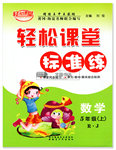题目内容
据报道2016年全球地表水将面临枯竭的危险,中国同样也面临着水资源严重短缺的问题,请你代表学生会写一份倡议书,呼吁同学们节约用水,防止水污染。
内容包括:1.水的重要性;
2.浪费和污染现象;
3.发出倡议。
注意:1.词数100左右;
2.可以适当增加细节,以使行文连贯;
3.开头和结尾已经给出,不计入总词数。
Save Water, Save Life
Dear students,
_______________________________________________________________________________
_______________________________________________________________________________
_______________________________________________________________________________
_______________________________________________________________________________
_______________________________________________________________________________
_______________________________________________________________________________
_______________________________________________________________________________
_______________________________________________________________________________
_______________________________________________________________________________
_______________________________________________________________________________
Thank you!
Student Union
 轻松课堂标准练系列答案
轻松课堂标准练系列答案
